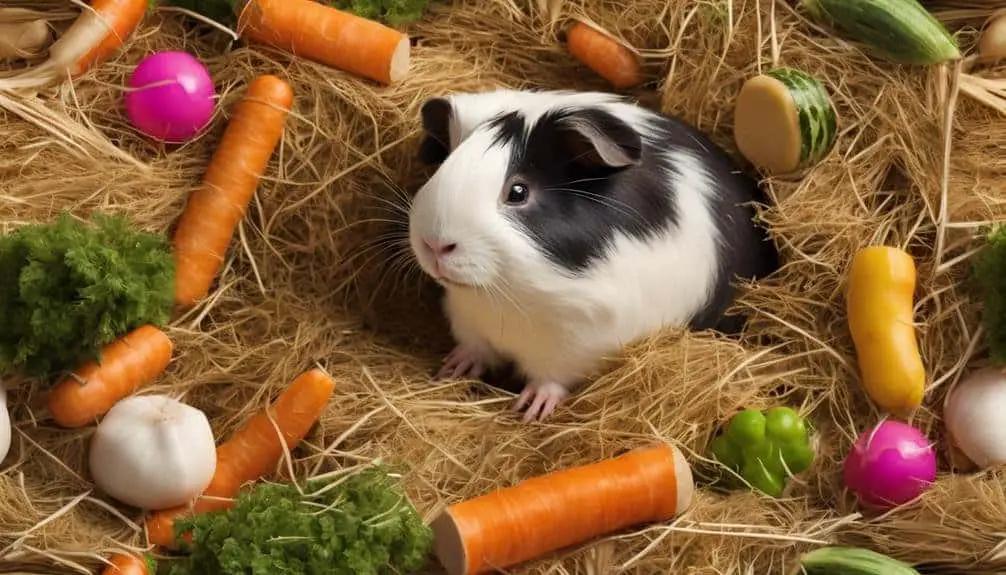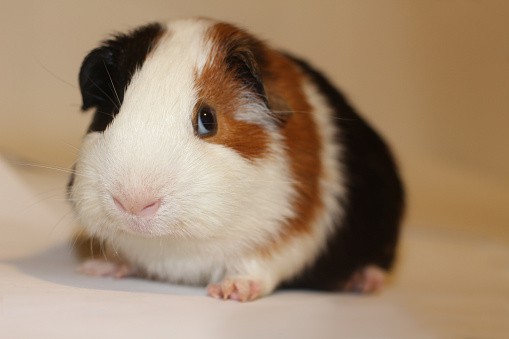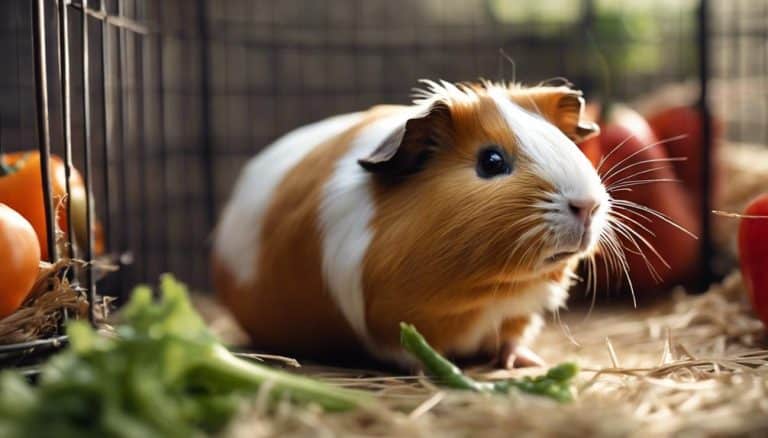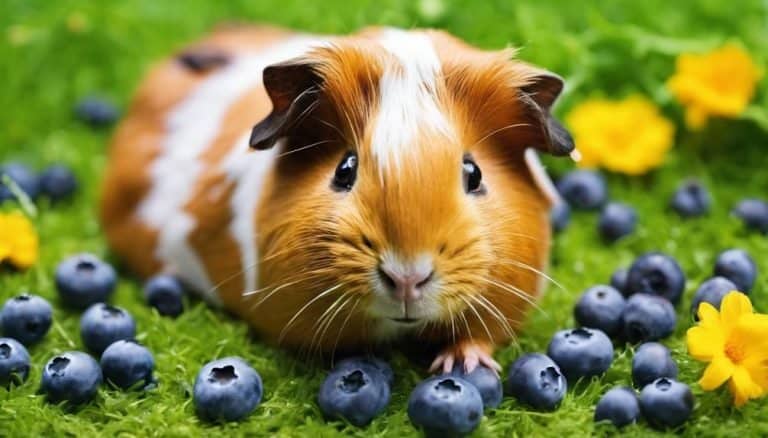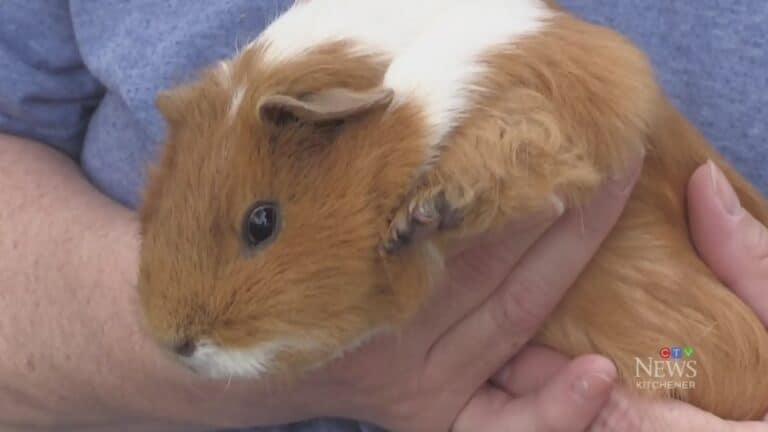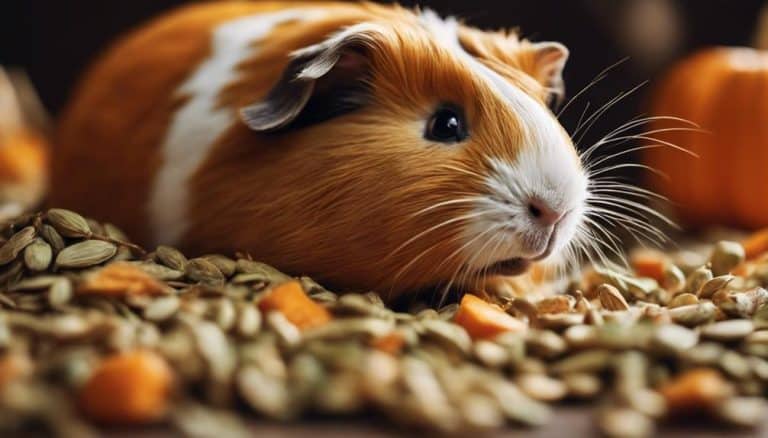How Guinea Pigs Thrive: A Complete Guide for Piggy Parents
As piggy parents, we all want our guinea pigs to not just survive but truly thrive. But how do we ensure that our adorable companions are living their best lives?
Well, it all starts with understanding their unique needs and providing the right care. From creating a safe and enriching environment to offering a balanced diet and nurturing their social interactions, there are key elements to consider.
So, if you’re eager to unlock the secrets to guinea pig happiness and well-being, let’s explore together how to make your piggy’s life truly fulfilling.
Proper Nutrition for Guinea Pigs
When caring for guinea pigs, ensuring proper nutrition is essential for their overall health and well-being. Guinea pigs need a balanced diet to thrive, with 75% of their food consisting of hay to support proper digestion and dental health. Vitamin C supplementation is crucial for guinea pigs since they can’t produce it themselves. Signs of vitamin C deficiency, such as lethargy, poor hair coat, and slow wound healing, indicate the importance of this nutrient in their diet.
In addition to hay and commercial guinea pig pellets, fresh vegetables play a vital role in providing additional vitamin C and essential nutrients. However, fruits should only be given as treats sparingly, around once a week, to prevent excess sugar intake. By offering a varied diet that meets their nutritional needs, guinea pigs can maintain optimal health and prevent potential deficiencies that may impact their well-being.
Ideal Housing Setup for Guinea Pigs
To ensure the well-being of guinea pigs, it’s crucial to provide them with an ideal housing setup that meets their specific needs and promotes a healthy living environment. Guinea pigs require a minimum cage size of 7.5 square feet to thrive, ensuring they’ve ample space to move around and exercise. Proper ventilation within the cage is essential to prevent respiratory issues, so choose a cage design that allows for good airflow. When it comes to bedding, opt for paper bedding over cedar shavings to maintain cleanliness and promote the health of your guinea pigs.
Place the cage in a quiet area of your home, away from busy windows and doors, to create a stress-free environment for your pets. If you have more than one guinea pig, increase the cage size by 20% per additional pig to provide enough space for their well-being and encourage interaction between them. Regular cleaning and interaction with your guinea pigs are also crucial for their overall health and happiness.
Socialization Tips for Guinea Pigs

Socializing guinea pigs is crucial for their mental well-being and overall happiness. When it comes to socialization, there are several key tips to keep in mind:
- Regular Interaction: Daily gentle handling and interaction with your guinea pigs helps them feel secure, loved, and prevents feelings of loneliness or depression.
- Providing Enrichment: Offering toys, tunnels, and hiding spots in their environment not only encourages mental stimulation but also provides opportunities for exercise, keeping your guinea pigs physically active and mentally engaged.
- Bonding and Pairing: Building a strong bond with your guinea pigs through positive reinforcement, treats, and spending quality time together is essential. Additionally, pairing guinea pigs with compatible cage mates can promote social behavior, reduce stress, and enhance their overall well-being.
Mental Stimulation Activities for Guinea Pigs
Engaging guinea pigs in mental stimulation activities is essential for preventing boredom and promoting their overall well-being. To keep your furry friends mentally active, consider providing puzzle feeders or forage mats. These tools engage guinea pigs in natural behaviors like foraging, stimulating their minds while they search for treats.
Rotating and introducing new toys regularly can also help keep guinea pigs curious and mentally engaged. Interactive toys such as tunnels, balls, and chew toys not only encourage physical activity but also provide mental stimulation.
Creating an enrichment environment with hiding spots, tunnels, and a variety of textures can further stimulate your guinea pigs’ senses and prevent stress. By incorporating these mental stimulation activities into your guinea pigs’ daily routine, you can ensure they lead happy, fulfilled lives.
Common Health Considerations for Guinea Pigs

Maintaining good health for guinea pigs is crucial, as they’re prone to various common health issues that require attentive care and prompt intervention. When caring for these delightful pets, piggy parents need to be aware of the following key considerations:
- Dental Problems: Guinea pigs are susceptible to dental problems such as overgrown teeth, which can lead to difficulties with eating and overall health. Regular trimming by a knowledgeable veterinarian is essential to prevent complications.
- Respiratory Infections: These furry companions are prone to respiratory infections, especially when exposed to drafts, dust, or poor ventilation. Immediate veterinary attention is necessary to treat these conditions effectively.
- Heat Stress: Guinea pigs are sensitive to heat stress and can suffer from heat-related illnesses. It’s vital to keep them in a well-ventilated, cool environment to prevent any heat-related issues.
Being proactive in addressing these concerns, along with regular grooming and parasite prevention, will help ensure that guinea pigs lead healthy and happy lives.
Conclusion
In conclusion, ensuring the well-being and happiness of your guinea pig involves providing proper nutrition, a suitable housing setup, socialization opportunities, mental stimulation activities, and addressing common health considerations.
By following the advice outlined in this guide, piggy parents can create a nurturing environment that allows their beloved pets to thrive and live a fulfilling life.
Remember, a little care and attention go a long way in keeping your guinea pig healthy and happy.

